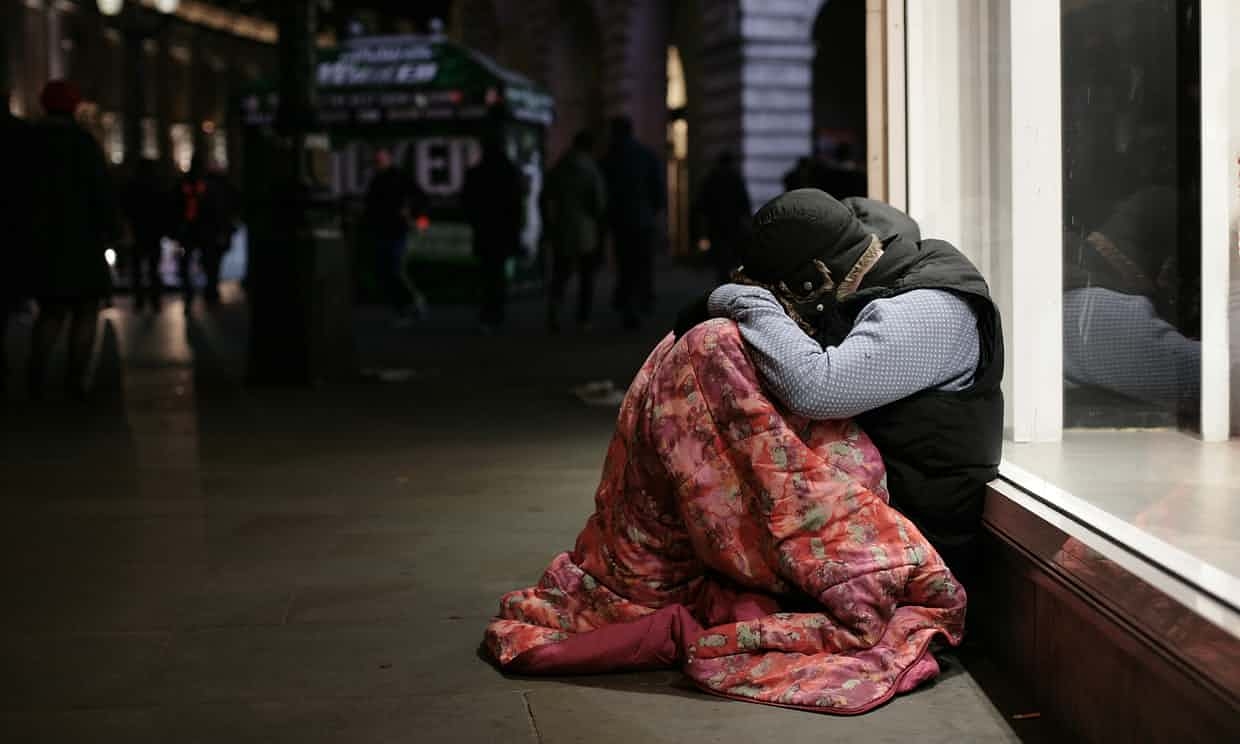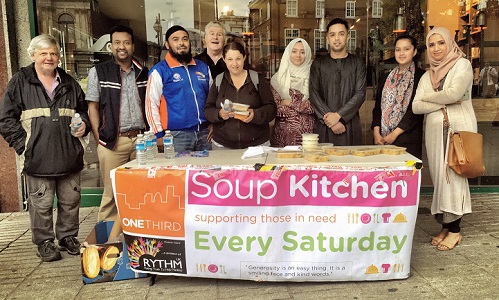
 Your Survival Depends on the Survival of Everyone
Your Survival Depends on the Survival of Everyone
It is probably impossible to know the full extent of homelessness, because of the difficulties of trying to collect information. Can you imagine going to every town or city in the country and trying to find and count every homeless person? It’s not going to happen.
Even when we read that homelessness is rising, it is hard to know what exactly is happening: either it is what it says on the tin or it just seems to be rising because the recorded numbers (as opposed to the actual numbers) are getting bigger. In any case, there are – as of November 2017 – at least more than 300,000 homeless people in Britain. This figure comes from the homelessness charity Shelter, who estimated a rise of 13,000 from 2016.
It seems strange that in a society with such an incredible abundance of resources, it is still so easy for people to slip through the cracks and be forgotten. In fact, homelessness today is such a regressive thing that the life expectancy of someone who is homeless (47 for a man and 43 for a woman) is lower than that of any other country worldwide. Enormous cuts to benefits, social and health services have left those on the edge more vulnerable to becoming homeless, and keeps those who are already in that position where they are.
In addition, the responses of both government and charitable organisations have not always been exactly helpful. Everyone has heard about the anti-homelessness spikes put in around city centres, but what about Hackney Council’s plan back in 2015 to fine homeless people £1,000 for being homeless in the wrong place, or leading charities such as Thames Reach and St. Mungo’s working with deportation teams?

When these institutions are failing so spectacularly to deal with the homelessness, what can we do to help those radically less fortunate than us to survive? Giving money seems to be the most immediate and effective strategy. However, whilst it is undoubtedly a potentially harmful stereotype that ‘all homeless people are addicts’ (another way to dehumanise them), it is sometimes distressingly obvious that the money you give them will go towards damaging substances. While some advocate donations despite this, you may not be comfortable funding the thing that either got the homeless person there in the first place, or is keeping them there.
Perhaps a better strategy is to give food, hot drinks or small gifts like warm clothing and bedding. Alternatively you could volunteer at a soup kitchen or shelter.Time as well, is very important. Taking a few minutes to stop and talk to someone on the street, instead of just giving them something and walking away, could make a huge difference. Being homeless could be an extremely lonely experience, and a kind word or friendly smile might even have the power to save a life.

Eradicating homelessness, whilst an enormous challenge, would allow so many people to make their contribution to society. In addition, helping to eradicate homelessness is a way of making your contribution, by helping others. The importance of this cannot be underestimated, and giving aid to those that need it makes you more conscious of your position and what you take for granted. Knowing these things are vital for a well-adapted and strong mind. If our priorities were adjusted so that it was no longer a problem, at least on the scale that it is currently, our society would be a much more healthy and productive one.
By Ed Edwards. Find my blog at faithintheroad.com
